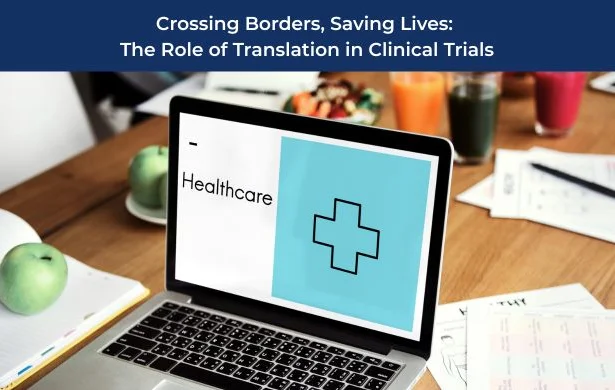
Clinical trial translation is a core focus of global medical research today. With mounting globalization, over 60% of clinical trials cross borders and languages, according to the World Health Organization. Multilingual clinical trials are crucial for reaching diverse patient populations and ensuring equitable, fair participation. However, language differences can lead to confusion, lower participation, and even compliance problems. Clinical trial translation services are essential for advancing medical science and saving lives worldwide.
Get in touch with us at +91 8237060559 to learn how our expert translation solutions can support your clinical research efforts.
Translation and localization are critical to the clinical and medical sectors. They ensure that research reports, patient communications, and regulatory filings are accurate and culturally appropriate. This bridges communication gaps, fosters trust, and allows for successful global research. Translation of clinical studies facilitates language access in clinical trials, ensuring research is safer and more productive for everyone involved.
Global Patient demographic knowledge is a secret to the successful translation of clinical trials. Audience analysis enables translation of clinical trial documents into the native language of participants, ensuring participation and ethical recruitment. For example, an Indian diabetes trial requires addressing local food consumption practices and linguistic nuances to recruit participants successfully.
Multilingual clinical trials are dependent on accurate communication in every participant's native language. Patients who receive a clear understanding of instructions, consent forms, and expectations tend to have higher enrollment rates and higher-quality data. Studies show that patients are 50% more likely to register when content is presented in their preferred language.
Importance
User interface and experience localization are critical in clinical trial translation. Applications, forms, and portals must be easy to use across different patients and researchers. By way of illustration, localized ePRO (electronic patient-reported outcomes) instruments yield better data quality and patient satisfaction through technology made accessible in the user's language.
Key Points:
Accuracy testing verifies that translated medical material is consistent, accurate, and in compliance with regulations. Linguistic QA, medical testing and back translation are crucial processes in the translation of clinical trials. Document errors account for over 30% of trial delays hence, strict review is essential.
Key Points:
Another crucial parameter of multilingual clinical trials is the adjustment of payment mechanisms according to country-specific requirements. Clinical study translation services ensure that payment guidelines are clear and available. An example is that mobile wallet payments are common in Asia, while bank transfers are more common in Europe, which requires localized payment mechanisms for reimbursement processes to be seamless.
Key Points:
Compliance with regional healthcare legislation is mandatory in clinical trials. Professional translation ensures that all documents comply with local laws, data protection standards, and regulatory requirements. Organizations such as the FDA, EMA, and CDSCO demand proper documentation, while GDPR compliance is imperative for European trials.
Key Points:
SEO localization is a powerful means of recruiting volunteers in multilingual clinical trials. Online outreach optimized for language improves the global exposure of clinical trials and attracts more participants from diverse backgrounds.
Key Benefits:
Clinical trials evolve in response to changing protocols and materials. It is essential to update and maintain the translated content to ensure ongoing accuracy and compliance. Ongoing review prevents the dissemination of outdated and incorrect information to patients or regulators.
Certified medical language professionals are the backbone of effective clinical trial translation and interpretation. Their expertise with complex vocabulary and clinical intent reduces mistakes, ensuring that differences in language in clinical trials never compromise patient safety or data integrity. Human translators enable accuracy in terminology, conceptual soundness and cultural sensitivity that machines cannot imitate.
Key Benefits:
Language Services Bureau is a trusted partner for providing translation services in clinical studies. With over 45 years of industry experience, it offers certified, ISO-compliant solutions for multilingual clinical trials. Language Services Bureau offers speed, precision, accuracy and cultural expertise through its team of specialists to help sponsors overcome language barriers in clinical trials and achieve global research success.
Clinical study translation has become a cornerstone of global medical research. As populations become increasingly diverse, multilingual clinical trials are the new standard for inclusivity and safety. Professional clinical study translation breaks down language barriers in clinical trials, ensuring compliance, accuracy, and patient trust. Through the assistance of experts like Language Services Bureau, sponsors can safely bridge borders and save lives one word at a time.